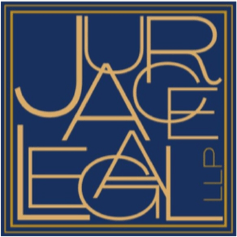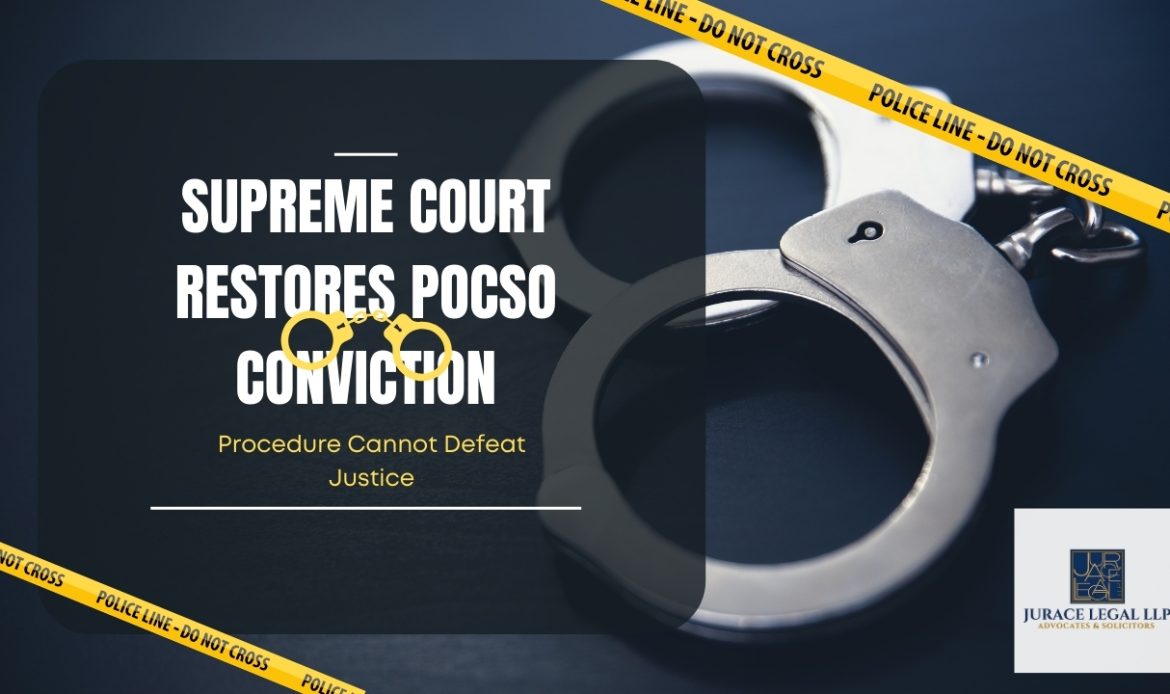Supreme Court Restores Conviction in POCSO Case: A Study of Sushil Kumar Tiwari vs. Hare Ram Sah & Ors.
Citation: 2025 INSC 1061
Date of Judgment: 1 September 2025
Coram: Justice Sanjay Kumar and Justice Satish Chandra Sharma
Introduction:
The Supreme Court’s recent decision in Sushil Kumar Tiwari vs. Hare Ram Sah & Ors. represents a significant reaffirmation of the principle that procedure must aid justice, not defeat it. The judgment underscores the need for courts to adopt a sensitive approach in cases of sexual violence against minors under the Protection of Children from Sexual Offences Act, 2012 (POCSO), while simultaneously clarifying the limits of procedural irregularities in criminal trials.
The Court restored the conviction of two accused, earlier acquitted by the Patna High Court, after holding that the High Court had overemphasised minor inconsistencies and misapplied provisions relating to framing of charges and joint trial under the Code of Criminal Procedure, 1973 (Cr.P.C.).
Factual Background:
In 2016, shortly after the festival of Holi, a minor girl aged about 12–13 years, daughter of the appellant, was repeatedly raped by the respondents, Manish Tiwari and Hare Ram Sah, in Piro, District Bhojpur, Bihar.
The victim concealed the incidents due to threats, but later fell ill. On 01.07.2016, during treatment at Zila Mahila Chikitsalaya, Ballia (U.P.), she was found to be three months pregnant. Upon disclosure of the assaults, an FIR (No. 209/2016) was registered on 02.07.2016.
The Trial Court convicted both accused under:
- Section 376(2) IPC – Rigorous life imprisonment + ₹50,000 fine,
- Section 6 POCSO Act – Rigorous life imprisonment + ₹25,000 fine,
- Section 4 POCSO Act – 7 years RI + ₹10,000 fine.
Sentences were to run concurrently.
On appeal, however, the Patna High Court set aside the conviction, citing procedural lapses (defective charges, joint trial under Section 223 Cr.P.C.) and inconsistencies in evidence.
Issues Before the Supreme Court:
- Whether the High Court erred in acquitting the accused on the ground of evidentiary inconsistencies and contradictions?
- Whether the joint trial under Section 223 Cr.P.C. and defective charges occasioned a “failure of justice” sufficient to vitiate the trial?
Contentions:
Appellant (Victim’s Father):
- The High Court suo motu raised Section 223 Cr.P.C. despite the accused not challenging it.
- The victim’s minority was conclusively proved by school records, medical reports, and parental testimony.
- Pregnancy and abortion were established through medical documents and official permissions from the Bihar State Legal Services Authority.
- The victim’s testimony was consistent and sufficient to form the sole basis of conviction.
- Procedural irregularities, even if present, did not prejudice the accused; at most, the case could have been remanded.
Respondents (Accused):
- Investigation was casual and deficient—failure to prove age, pregnancy, abortion.
- The charge sheet and charges were defective; the incorrect date of occurrence prejudiced the defence.
- Joint trial violated Section 223 Cr.P.C. as offences were separate.
- Section 313 Cr.P.C. examination was improperly conducted.
- The victim’s testimony suffered from contradictions and could not be solely relied upon.
Supreme Court’s Findings:
- Victim’s Testimony:
- Victim consistently narrated the incidents in her police statement, deposition under Section 164 Cr.P.C., and trial testimony.
- Minor lapses (such as not recalling precise dates/times) were natural for a traumatised minor.
- The Court reiterated that a victim’s testimony, if credible, can form the sole basis of a conviction in sexual offences.
- Proof of Minority:
- School transfer certificate recorded her DOB as 03.10.2004.
- Parental testimony placed her age at 12 years; the medical report showed 15 years.
- Despite slight variations, she was undoubtedly below 18.
- The court emphasised sensitivity to socio-economic realities where documentary discrepancies are common.
- Proof of Pregnancy & Abortion:
- Ultrasound (01.07.2016) showed 15 weeks pregnancy; further confirmed on 02.07.2016.
- Discharge certificate (30.07.2016) from Sadar Hospital, Ara and BSLSA’s approval letter corroborated the abortion.
- The High Court had overlooked this overwhelming evidence.
- Delay in FIR:
- Explained satisfactorily—the victim remained silent due to threats until pregnancy was detected. FIR was filed immediately thereafter.
- Defective Charges:
- Charge erroneously stated date of offence as “02.07.2016.”
- Applying Sections 215 & 464 Cr.P.C., the Court held that defects in charge are immaterial unless they mislead the accused or cause failure of justice.
- Here, no prejudice was shown—the accused were fully aware of the allegations.
- Joint Trial under Section 223 Cr.P.C.:
- The High Court held that offences were separate and not part of the “same transaction.”
- The Supreme Court accepted that view but clarified:
a. Mere irregularity in joinder of trial does not vitiate proceedings.
b. Prejudice and failure of justice must be shown, which was absent here.
c. In fact, separate trials would have increased the victim’s trauma by requiring her to testify twice.
7. Standard of Proof: Beyond a Reasonable Doubt:
- The Court criticised the High Court for equating “minor inconsistencies” with “reasonable doubt.”
- Observed that loose acquittals embolden culprits and undermine public confidence in justice.
- Reasonable doubt must be serious and probable, not speculative.
Judgment:
- The Supreme Court set aside the Patna High Court’s acquittal.
- Restored the Trial Court’s conviction and sentences.
- Ordered the accused to surrender within two weeks; failing which, the Trial Court was to secure custody.
Key Legal Principles Reaffirmed:
- Victim’s testimony can suffice for conviction if consistent and credible.
- Age determination in POCSO—minor discrepancies cannot dilute special protection for children.
- Procedural defects in charges are not fatal absent demonstrable prejudice (Sections 215, 216, 464 Cr.P.C.).
- Section 223 Cr.P.C.—misjoinder of trials does not vitiate proceedings unless prejudice is shown.
- Beyond a reasonable doubt—courts must avoid overextending the principle to acquit on flimsy grounds.
Significance:
This ruling is a landmark in reinforcing victim-centric jurisprudence under the POCSO Act. It warns against overemphasis on procedural technicalities that enable culprits to escape justice, while also laying down a pragmatic approach to errors in charges and joint trials. Importantly, it highlights that criminal procedure exists to further justice, not frustrate it.
The judgment will likely serve as a guiding precedent for trial and appellate courts, particularly in cases involving sexual offences against children, where sensitivity, contextual appreciation of evidence, and balance between the rights of the accused and victim are crucial.
Full Judgment: Sushil Kumar Tiwari vs. Hare Ram Sah & Ors.
Disclaimer: This article is for informational purposes only and does not constitute legal advice. The content may not reflect the most current legal developments and is not guaranteed to be accurate, complete, or up-to-date. Readers should consult a qualified legal professional before taking any action based on the information provided. The authors and publishers disclaim any liability for any loss or damage incurred as a result of reliance on this article. This article does not create an attorney-client relationship.

